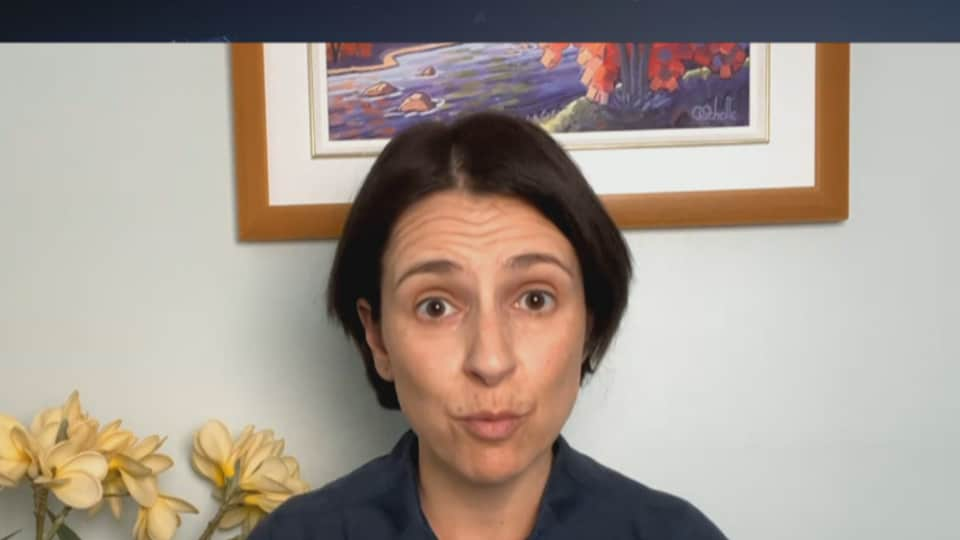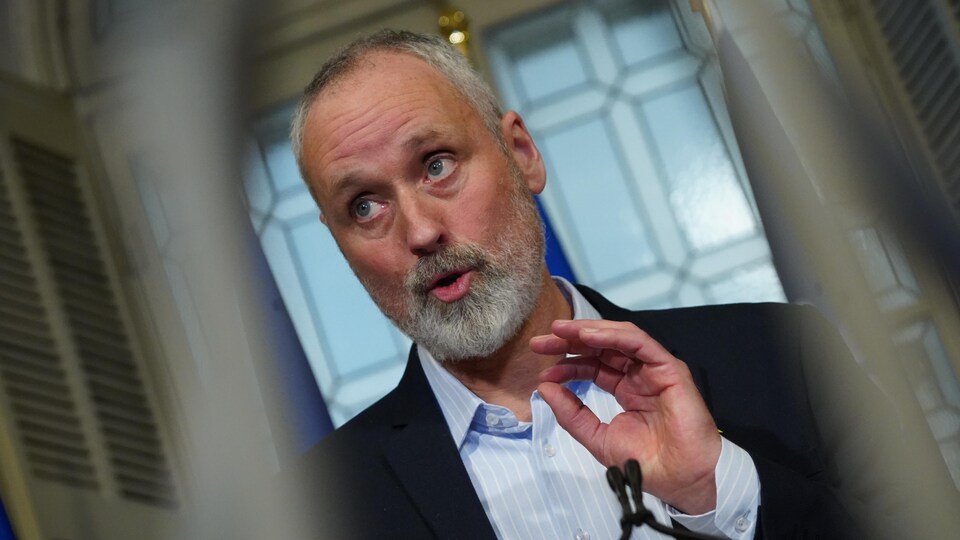Minister Christian Dubé did not intend to intervene to reduce nurses ’summer vacations in hospitals despite the emergency room overflow.
The alarm bell on Monday by chief medical officers in the hospital’s emergency rooms, in a letter obtained by Radio-Canada, generated many reactions.
Approximately sixty doctors from the Regroupement des chefs d’urgence du Québec (RCUQ) believe that the quality of care has been compromised and that several possible preventable deaths have been reported […] in recent months, due to the lack of access to a stretcher and the care required by the condition.
They require the opening of hospital beds rather than partial closure during the summer.
For Dr. Judy Morris, emergency physician at the Hôpital du Sacré-Coeur de Montréal and president of the Association of Emergency Physicians of Quebec (AMUQ), it is necessary that the urgency [d’agir] everyone in the network will feel, because there we have the impression that we are the only ones who will experience it, the pressure.
The government and the ministry should put pressure on health establishments […] be responsible and accountablesaid Dr. Morris.
According to the president of AMUQ, teams cannot be asked on an almost regular basis to operate at 150 to 200% of their capacityotherwise, he warns, burnouts and departures will increase.
For his part, the Minister of Health and Social Services did not express to the public the same sense of urgency as doctors.
First of all, it’s not surprising, we know that summer is always hard on the health network when the holiday arrives.commented Christian Dubé.
Moreover, the latter did not intend to interfere in providing summer holidays. It’s a commitment for the nurses, we have to give the deserved holidayssaid the Minister.
” Yes it can be a difficult summer, I said it, but I think we are putting things in place that will help us. “
According to available data compiled by Radio-Canada, the percentage of patients on the stretcher staying more than 24 hours in the emergency room has decreased from approximately 17% when the Coalition avenir Québec (CAQ) seated in 2018 up nearly 22% last year.
Since the start of the holidays in the health sector, a week ago, this rate has changed between 24% and 32%.
“Call the Chief Coroner”
Asked at the entrance of a parliamentary committee, the spokesman for Québec solidaire in terms of health, Vincent Marissal, believes that the first thing to do is call the chief coroner because doctors are talking about preventable death.
Among the solutions he proposed, we need to reopen the first line so that small wounds don’t end up in the hospitalsaid the deputy. Unfortunately, nothing has been done in four years […] and the minister always makes solutions within a year.
For her part, Quebec Liberal Party leader Dominique Anglade lamented the lack of family doctors and its impact on emergency room attendance.
When the CAQ took over, there were 400,000 people waiting for a family doctor, while now there are over a million waiting! [Et] because the first line is not enough, it overflows into our emergencieshe says.
For Joël Arseneau, Leader of the Third Opposition Group and Parti Québécois Health Critic, this is a good illustration of the fact that we are always, in the CAQ, back in the news and in problems, we have no ability to rely on.
According to the latter, if we take care of non-emergency cases at local CLSC clinics, we are not there.
MUHC supports emergency chiefs
When asked to comment, most health facilities directed us to MSSS.
At McGill University Health Center (MUHC), media relations consultant Annie-Claire Fournier clarified via email that We read with interest the letter signed by the leaders of emergencies addressed to all CEOs of the network and published today. Emergency room traffic over the past few weeks has been really disturbing, and we recognize that this situation has had an impact on our patients and their families, on our staff and on our doctors..
” We also share the position of Quebec’s emergency medical leaders who state that pressure must be distributed throughout the health care system, to allow emergency rooms to fulfill their primary mission, to provide immediate care. “
Sa CISSS of Laval, spokeswoman Marie-Eve Despatie-Gagnon referred by e-mail that the establishment is among those with the smallest way to TSO [heures supplémentaires obligatoires, NDLR] throughout the health network in Quebec […] that several different projects are being evaluated to further reduce the use of TSOincluding project self -management schedules .
He also noted that the Cité-de-la-Santé hospital is re-evaluating the relevance of maintaining approximately fifteen stretchers added to 49 in the emergency room during the pandemic, to ensure safe distance.
Source: Radio-Canada

